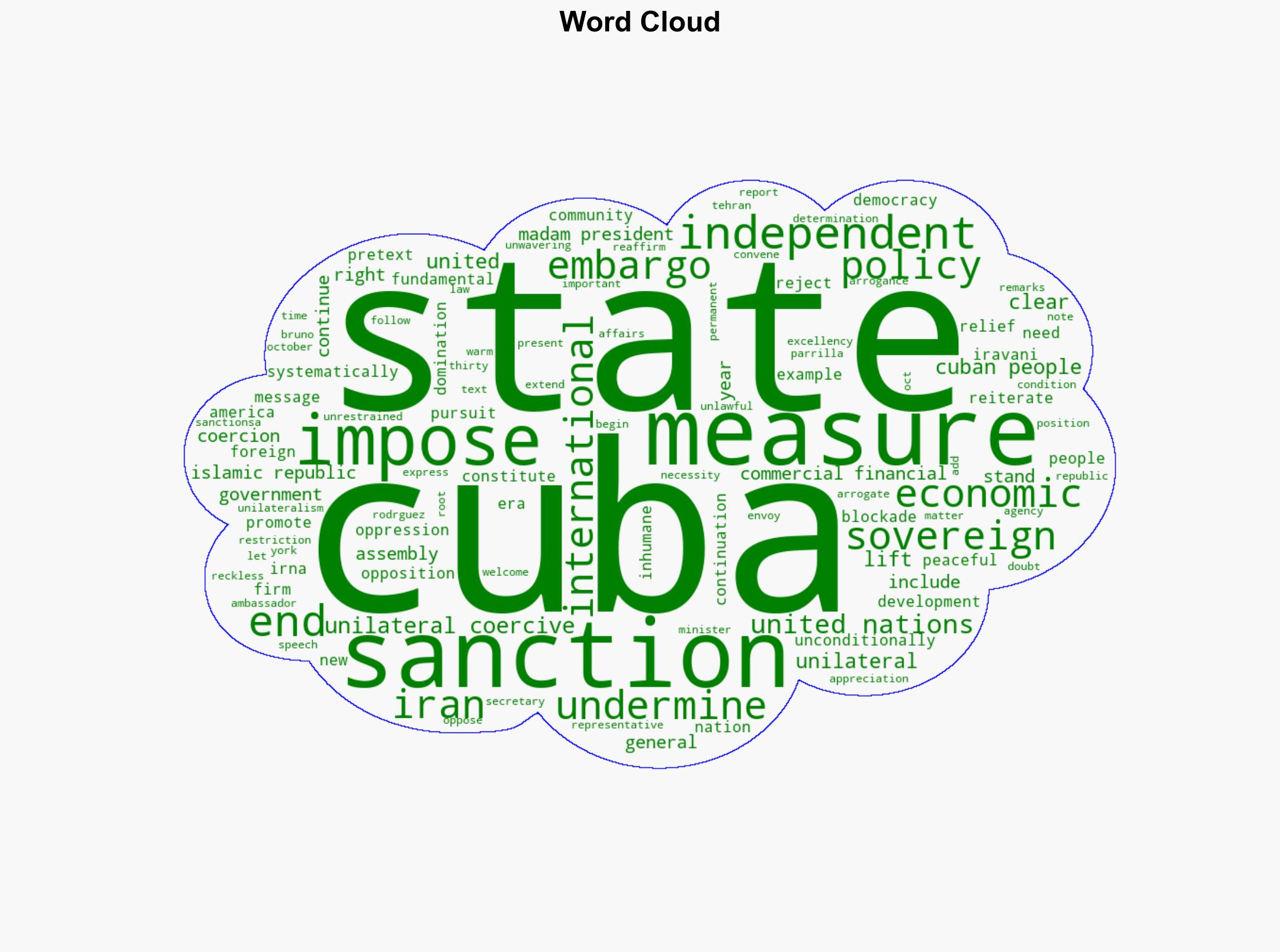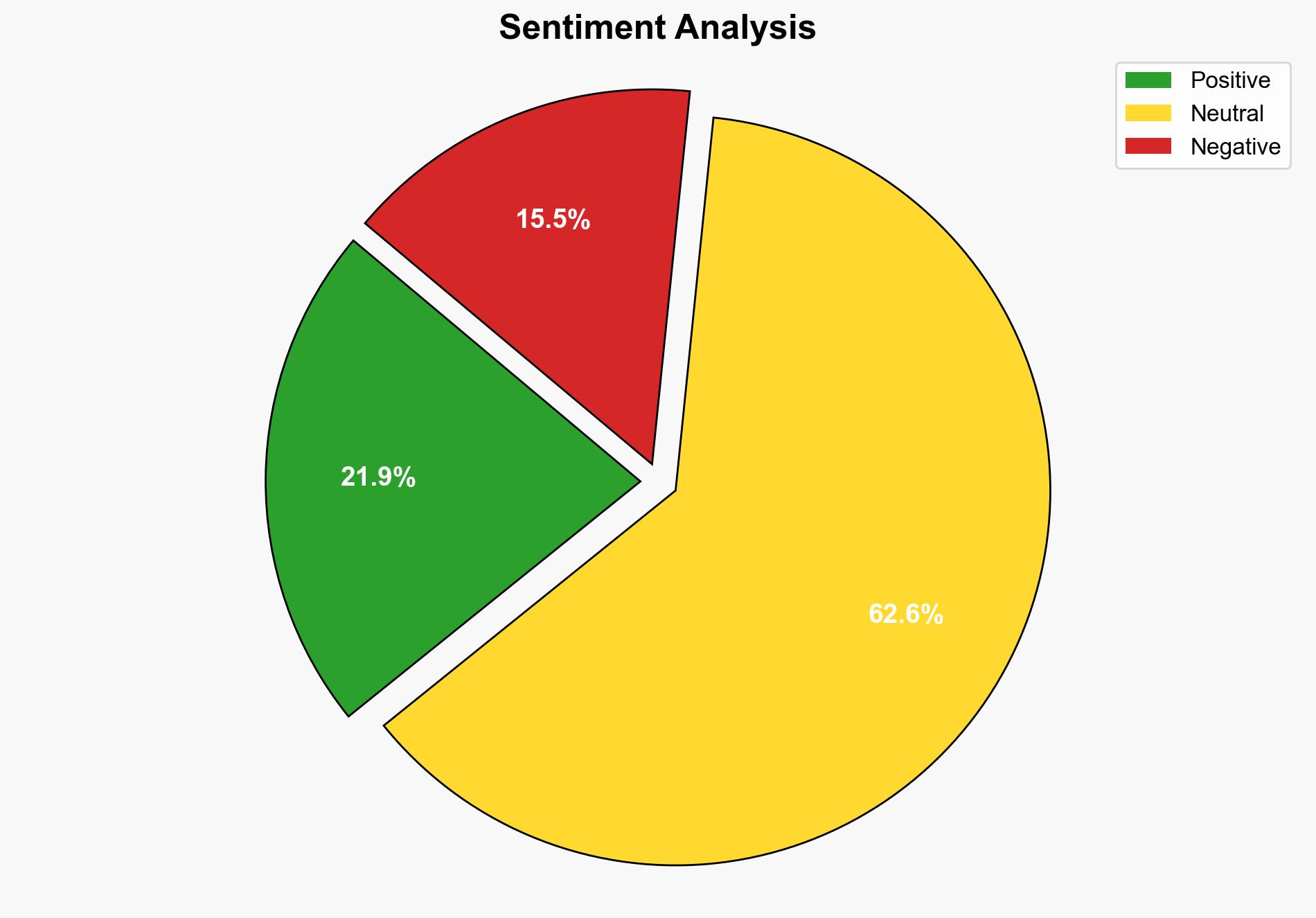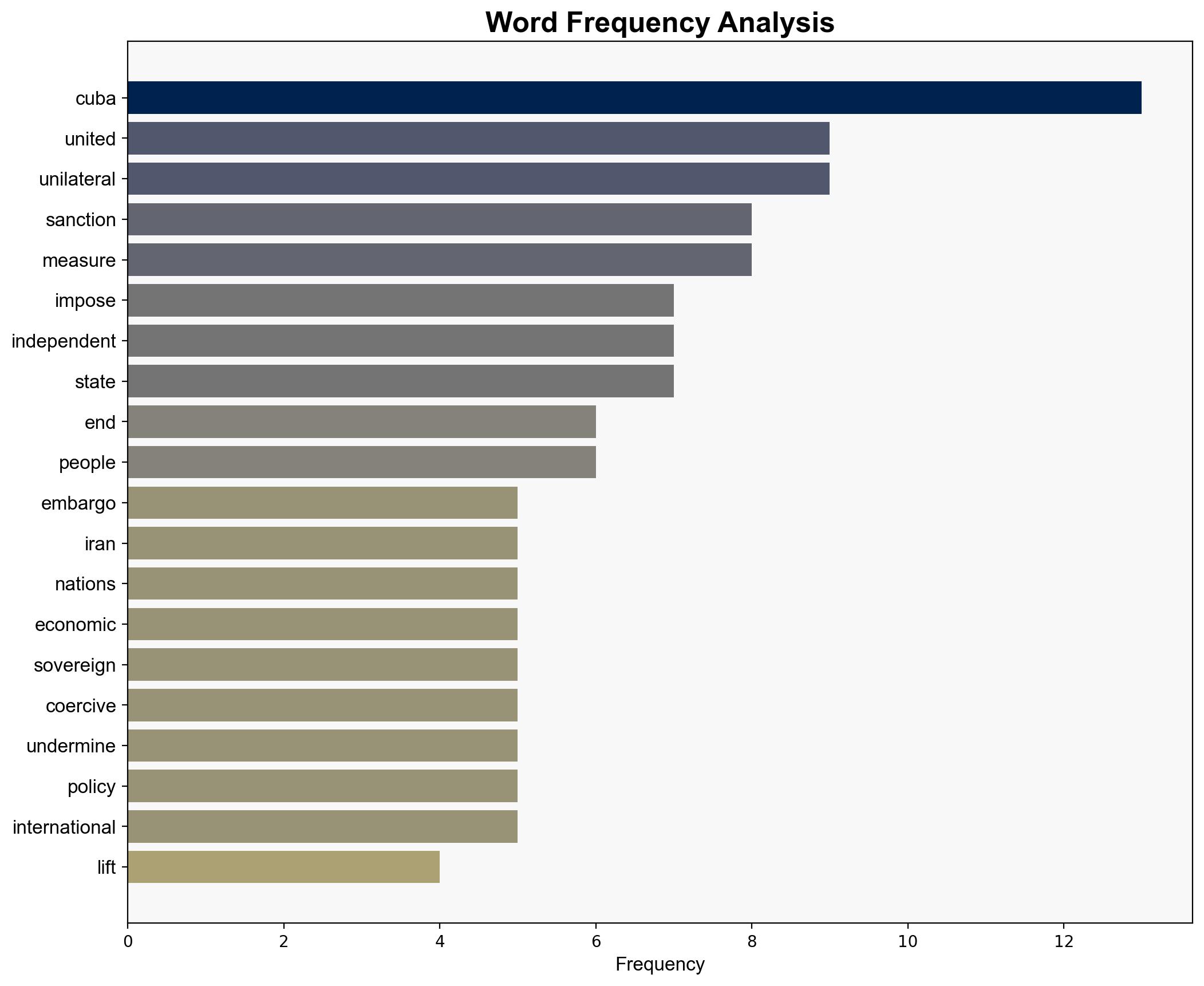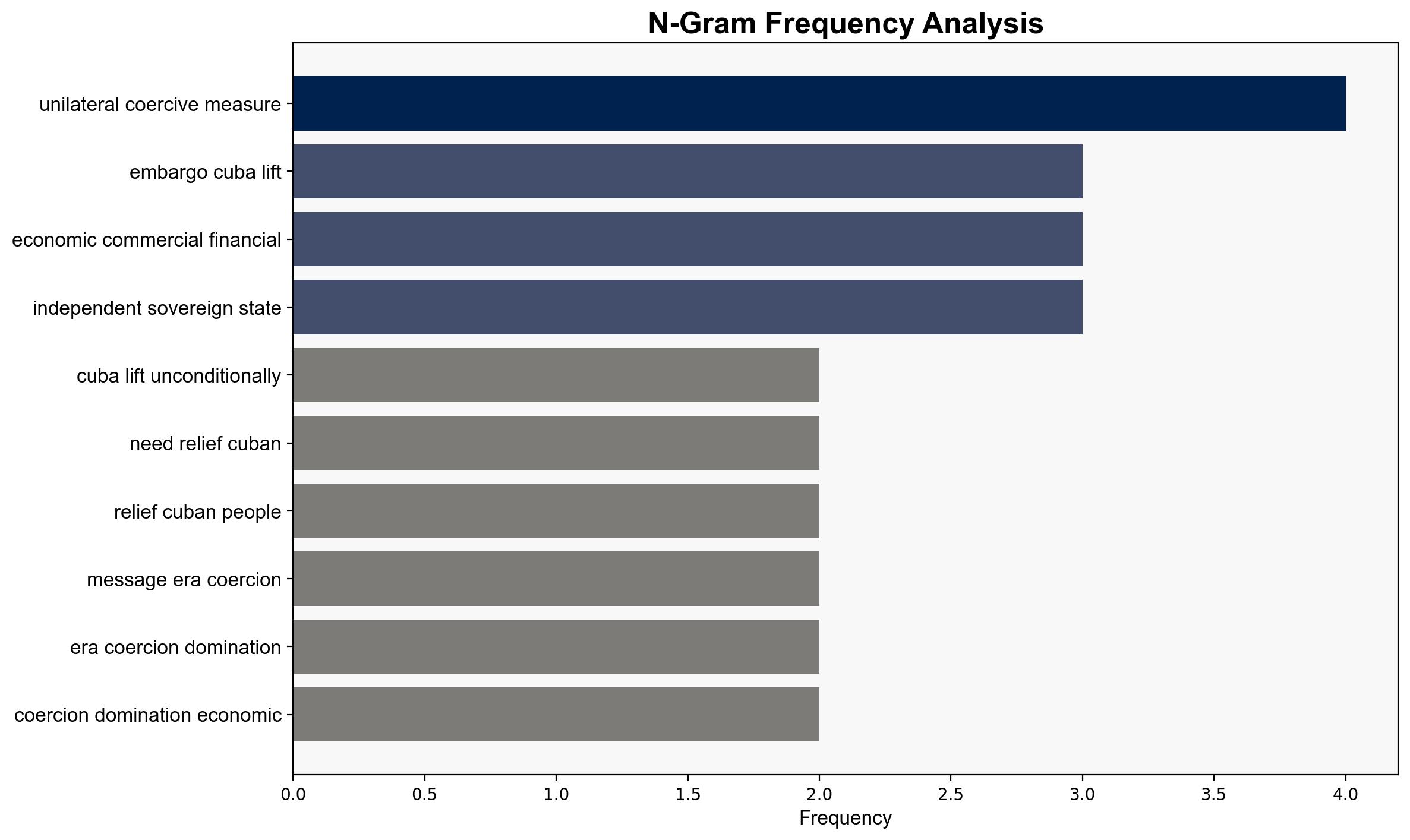Embargo against Cuba must be lifted immediately unconditionally Iran – Globalsecurity.org
Published on: 2025-10-30
Intelligence Report: Embargo against Cuba must be lifted immediately unconditionally Iran – Globalsecurity.org
1. BLUF (Bottom Line Up Front)
The most supported hypothesis is that Iran’s call for lifting the embargo on Cuba is primarily a strategic move to bolster its own geopolitical influence and align with nations opposing U.S. policies. Confidence level: Moderate. Recommended action: Monitor Iran’s diplomatic engagements and assess potential shifts in international alliances that could impact U.S. interests.
2. Competing Hypotheses
1. **Hypothesis A**: Iran’s advocacy for lifting the embargo on Cuba is a genuine effort to support humanitarian relief and uphold international law principles.
2. **Hypothesis B**: Iran’s stance is a strategic maneuver to strengthen alliances with countries opposing U.S. sanctions, thereby enhancing its geopolitical influence.
Using the Analysis of Competing Hypotheses (ACH) 2.0, Hypothesis B is better supported due to Iran’s historical pattern of aligning with states that challenge U.S. policies and its emphasis on multilateralism as a counterbalance to U.S. influence.
3. Key Assumptions and Red Flags
– **Assumptions**: Iran’s statements are assumed to be primarily driven by geopolitical strategy rather than purely humanitarian concerns.
– **Red Flags**: Lack of detailed evidence supporting humanitarian initiatives by Iran in Cuba; potential bias in interpreting Iran’s motives due to historical U.S.-Iran tensions.
– **Blind Spots**: The broader international community’s response to Iran’s call is not fully explored, which could impact the validity of the hypotheses.
4. Implications and Strategic Risks
– **Geopolitical**: Iran’s actions could lead to a realignment of nations opposing U.S. sanctions, potentially weakening U.S. influence in multilateral forums.
– **Economic**: Lifting the embargo could alter economic dynamics in the region, affecting U.S. businesses and interests.
– **Psychological**: Iran’s rhetoric may embolden other nations to challenge U.S. policies, impacting global perceptions of U.S. leadership.
5. Recommendations and Outlook
- Enhance diplomatic efforts to counter Iran’s narrative by highlighting the benefits of current policies and engaging with allies to present a unified stance.
- Scenario-based projections:
- **Best Case**: Increased diplomatic engagement leads to a resolution that maintains U.S. influence while addressing humanitarian concerns.
- **Worst Case**: Iran successfully galvanizes a coalition that undermines U.S. sanctions, leading to a loss of strategic leverage.
- **Most Likely**: Continued diplomatic stalemate with incremental shifts in international alliances.
6. Key Individuals and Entities
– Bruno Rodríguez Parrilla
– Amir Saeid Iravani
7. Thematic Tags
national security threats, geopolitical strategy, international sanctions, U.S.-Iran relations





